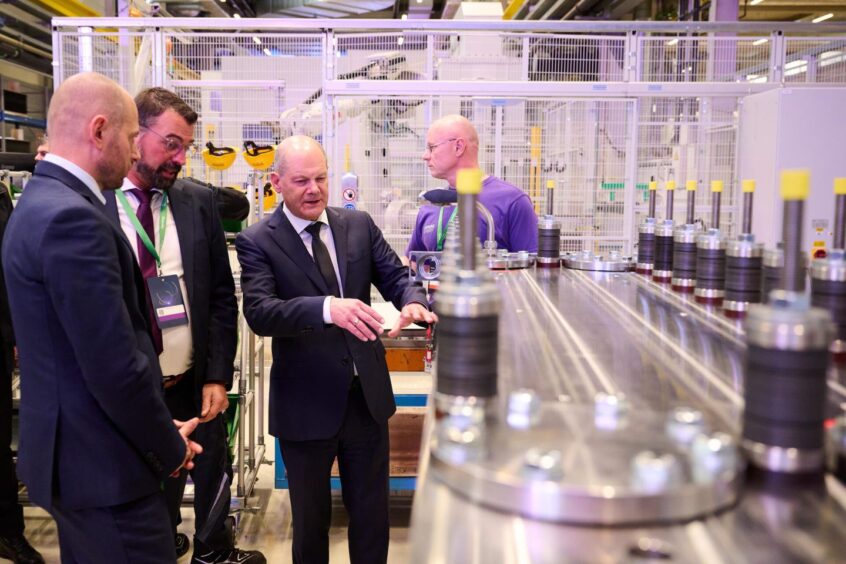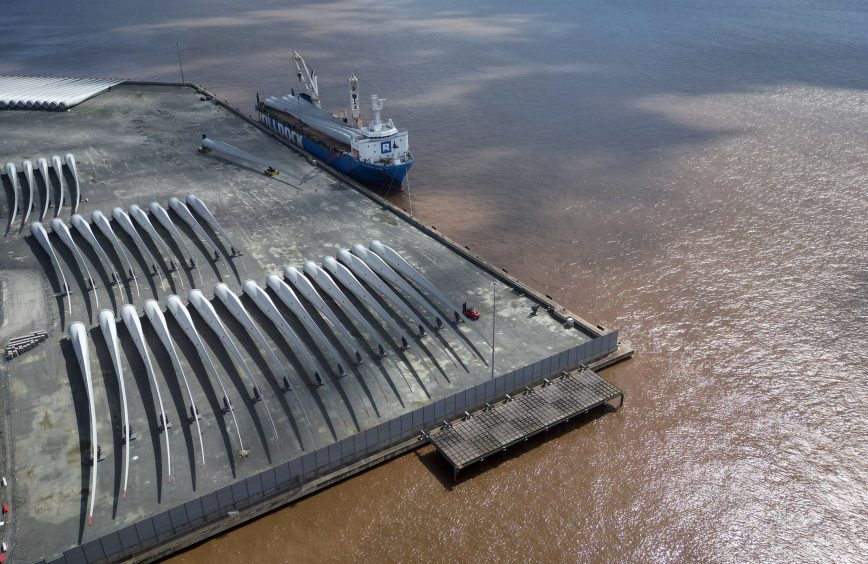
Slow decision-making and a lack of projects means the UK has lost out on opportunities to anchor a domestic hydrogen supply chain, politicians have heard.
During an evidence session for the Energy Security and Net Zero Committee on the domestic energy supply chain, representatives from Siemens Energy said a clear pipeline of European projects led the company to set up an electrolyser factory in Berlin, despite the UK’s many natural advantages.
The group’s head of market and government affairs, Matthew Knight, told MPs that Britain had “missed an opportunity to be right out in front.”
“We have some tremendous advantages for hydrogen in this country – geology and geography and weather.
“It’s still not too late, but there is a much greater value in getting those first-of-a-kind projects away and then following them up with a pipeline of projects and building a supply chain from the start.”
Mr Knight said company representatives had urged the government in 2020 to move forward with a “quick and simple scheme” to support an early build out of green hydrogen projects.
“Back in 2020, no one had built any hydrogen projects anywhere in Europe. It was a blank sheet of paper and we urged the UK Government to move forward with a quick and simple scheme.
“Instead of that, the UK Government has developed the [Hydrogen Allocation Round] regime which we will need, but it’s taken four years to do that.”
And while that process has now yielded a string of early stage projects as part of the HAR1 round, none have yet reached a final investment decision (FID), nor have any awarded a contract to an electrolyser manufacturer.
Indeed, hydrogen backers have branded the scheme a “total failure” due to a lack of joined up thinking.
“Meanwhile, in Europe, projects have gone ahead and that’s why 16 manufacturers have announced factories in Europe in the last three years. The UK has yet to get out of the starting blocks,” added Mr Knight, pointing to new facilities in the likes of Germany, France and Denmark.
Siemens Energy VP for UK and Ireland Darren Davidson pointed to the 825MW of potential capacity set out for HAR2, but again said projects faced a long wait.
“I think if you look at the scale of what we’re trying to do across all of the energy transition, they’re all stories like this. They’re all stories that we’re not getting going,” he added.
The committee met the day before Vattenfall’s announcement that the HT1 hydrogen-wind trial off Aberdeen would be wound down, amid wider concerns over delays to a BP-led hydrogen hub set to be built in the city.
Hydrogen risks repeat of offshore wind
MPs drew comparisons between the hydrogen supply chain and the early development of offshore wind, particularly in light of Siemens Gamesa’s decision to scale back its local manufacturing ambitions between 2010 and 2014.
While Hull was eventually chosen as the site of a £300m blade factory in 2014, MPs acknowledged plans had been reduced several times “because of political signals”, largely related to a reduction in capacity goals.
The company’s head of net zero business development Andrew Elmes explained: “We started off looking at whether it was going to be a nacelle factory, even towers, as well as a blade factory, and then the ultimate decision in 2014 was the blade factory.
“We put our nacelle factory elsewhere and it ended up in Germany.”
Meanwhile, executives said Siemens Energy expected just 3-6GW of new offshore wind capacity to be awarded in the upcoming AR6 Contract for Difference round, once projects re-bidding from AR4 and AR5 were excluded.
The result, while a correction to the washout of AR5 last year, would still fall short of the 7-10GW of new capacity needed to carry the UK towards its 50GW target by 2030.
Recommended for you

 © Bloomberg
© Bloomberg